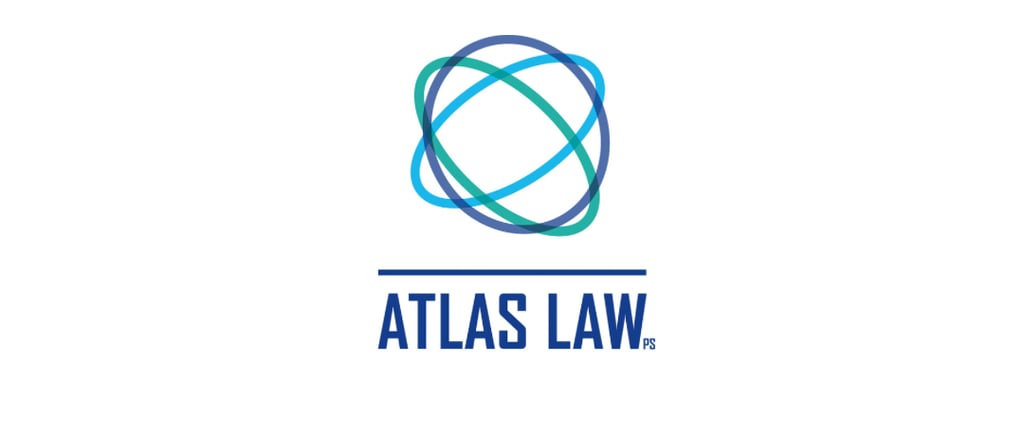Top 5 Reasons a Washington State L&I Workers’ Compensation Claim May Be Rejected
Learn the top 5 reasons your Washington State L&I (Labor & Industries) workers’ compensation claim may be denied. Attorney Elijah Forde of Atlas Law explains why claims get rejected.
Atlas Law
10/10/20253 min read


Top 5 Reasons a Washington State L&I Workers’ Compensation Claim May Be Rejected
A Washington State L&I claim may be rejected for several specific reasons, including filing deadlines, medical documentation issues, or questions about whether the injury is work-related. Understanding the most common denial reasons can help injured workers avoid preventable mistakes and protect their benefits.
Wondering why your Washington State Labor & Industries (L&I) workers’ compensation claim might have been rejected? You are not alone. Here at Atlas Law, and we’ve helped hundreds of injured workers understand and overcome L&I denials.
Below are the top five reasons your L&I workers’ compensation claim may be denied.
1. Missing the Filing Deadline (Occupational Disease or Industrial Injury)
One of the most common reasons for L&I claim denial is filing too late. L&I requires that you file a workers’ compensation claim within one year after your injury or two years after the diagnosis of an occupational disease. If the claim is not filed within the appropriate deadline—whether it’s for an Occupational Disease (OD) or Industrial Injury (II)—it is often rejected automatically. RCW 51.28.050; 51.28.055
2. Incomplete or Incorrect Information from Provider
Your doctor’s initial report plays a crucial role in the L&I workers’ compensation claim process. If the provider does not clearly state that your condition is work-related or uses language that does not meet L&I’s standards, your claim may be denied. Always make sure your medical provider fully understands how the injury occurred or how the condition relates to your job duties. If the provider does not indicate that your condition is work related either by checking “yes” or “probably” on the Report of Injury (ROI) form, then the claim may be automatically denied. If the claim is not automatically denied, L&I may request a further medical work-up to include an Independent Medical Evaluation (IME). Previous medical records may also be requested. Report of Accident form.
3. L&I Determines the Condition Is Not Work-Related
If L&I determines that your injury did not occur at work—or that your condition did not arise naturally and proximately out of your employment—your claim will likely be denied. The Department could reach this conclusion for several reasons including, but not limited to, evidence suggesting the condition was already pre-existing and symptomatic prior filing the claim or that there is no clear link between the condition(s) and employment. Establishing a clear link early between your work activities and your medical condition is key to approval. RCW 51.08.100; 51.08.140.
4. You Are Not Considered a Covered Employee
Not everyone who works qualifies for L&I workers’ compensation benefits. If you are an independent contractor, volunteer, or otherwise not classified as an employee under Washington’s workers’ compensation laws, your claim will be rejected. Additionally, if you are self-employed, a sole proprietor, an LLC, or a partner of a corporation, you are not automatically covered or required to provide coverage for yourself. You can opt to pay for coverage. However, if you have not opted for coverage, and you file a claim, your claim will be denied. Confirming your employment status early can save time and frustration later. RCW 51.12.020
5. Injury Outside of the Scope of Work
If it is determined that the injury or condition occurred because of actions outside of the scope of work, then the claim will likely be denied. “Outside of the scope of work” includes, but is not limited to- horseplay, parking lot injuries, and commuting to or from work. There are notable exceptions including if you are commuting between job sites or if you are in the parking lot for a work-related reason. A claim for injuries resulting from a situation generally considered “outside of the scope of work” may result in an automatic denial or there may be further investigation before a final decision is made.






A denial does not always mean your claim is over. Washington workers’ compensation claims can often be appealed or supported with additional medical evidence, clarification from providers, or legal guidance. Acting quickly after receiving a denial is important because appeal deadlines apply.
If your L&I claim has been denied, Atlas Law can help you understand your options and protect your benefits.